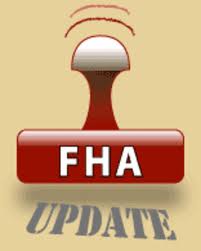Lynnwood’s Martha Lake Neighborhood
Martha Lake is a popular and rapidly growing neighborhood in Lynnwood, Washington. As of the 2020 Census, it’s home to just over 7,300 people.
Known for quiet streets and a secluded feel, this enclave of generally spacious homes is only half an hour’s drive north of Seattle, and ten minutes northeast of the lively commercial areas around Alderwood Mall.
Homes
The roomy homes around Martha Lake fetch a fairly high price per square foot, in keeping with other desirable spots in Snohomish County.
Owner-occupied single-family homes are the norm. Houses aren’t often for rent, although there are a couple apartment complexes along the neighborhood’s southern edge.
As you’ll find throughout Lynnwood, prices are changing quickly as more people seek to settle here.
Education
The well-regarded Edmonds School District serves the majority of Martha Lake and several adjoining areas. Most local families attend Oak Heights Elementary School, Alderwood Middle School, and Lynnwood High School.
The northernmost portion falls within the Mukilteo School District, and attends Discovery Elementary School, Voyager Middle School, and Mariner High School.
Some parents also opt for one of several private schools within about 5–10 miles of the neighborhood.
Transportation
Like most of Lynnwood, Martha Lake is roughly halfway between Seattle and Everett.
The neighborhood has good freeway access, being adjacent to I-5 and just minutes north of the I-5/I-405 interchange. Five miles south of Martha Lake, an upcoming light rail station will give locals a great option to leave town—and leave their cars behind.
Recreation
Close to home, residents can enjoy the fresh air and greenery at Martha Lake Park and the former Martha Lake Airport, which was converted to a large park after the airfield’s closure. Dozens of other parks, trails, and green spaces are also accessible within a few miles’ drive.
Seattle’s big-city amenities and Everett’s burgeoning cultural scene are both readily accessible, while outdoorsy types enjoy easy access to the Cascades via Highway 2.
Moving to Martha Lake in Lynnwood
It’s easy to see why so many out-of-towners opt for Martha Lake, and why plenty of Lynnwood locals hope to own their first house here.
If you’d like to call it home, too, then here are three tips for an easy transaction and transition.
1. Don’t be scared!
If the homebuying process seems a bit overwhelming or mystifying, you’ve got nothing to worry about. Even if it’s not your first house, it’s still normal for the whole thing to feel like…a bit much.
Remember that a big part of your agent’s job is to help you stay on top of all those moving pieces!
2. Find a local expert to guide you
Speaking of agents, it’s essential to find someone who knows Martha Lake and its vicinity like the back of their hand.
Agents who can fill out paperwork are a dime a dozen, but there’s no substitute for the street-by-street knowledge of someone who actually lives and works in the Lynnwood area.
3. Talk to lenders & get pre-approved
Before doing anything else, it’s important to consult a lender and have a mortgage pre-approval in hand.
This will let you move quickly and make a successful offer—fingers crossed!—once you’ve found the ideal Martha Lake home.


 When you are looking into your first home to purchase in the Bothell, Mill Creek, Lynnwood, Edmonds, or Seattle area and you are starting the loan pre-approval process, there are a few different loan programs to choose from.
When you are looking into your first home to purchase in the Bothell, Mill Creek, Lynnwood, Edmonds, or Seattle area and you are starting the loan pre-approval process, there are a few different loan programs to choose from. Who can qualify for a
Who can qualify for a  April 1st of 2012 will not be a good April Fool’s joke – once again
April 1st of 2012 will not be a good April Fool’s joke – once again 


